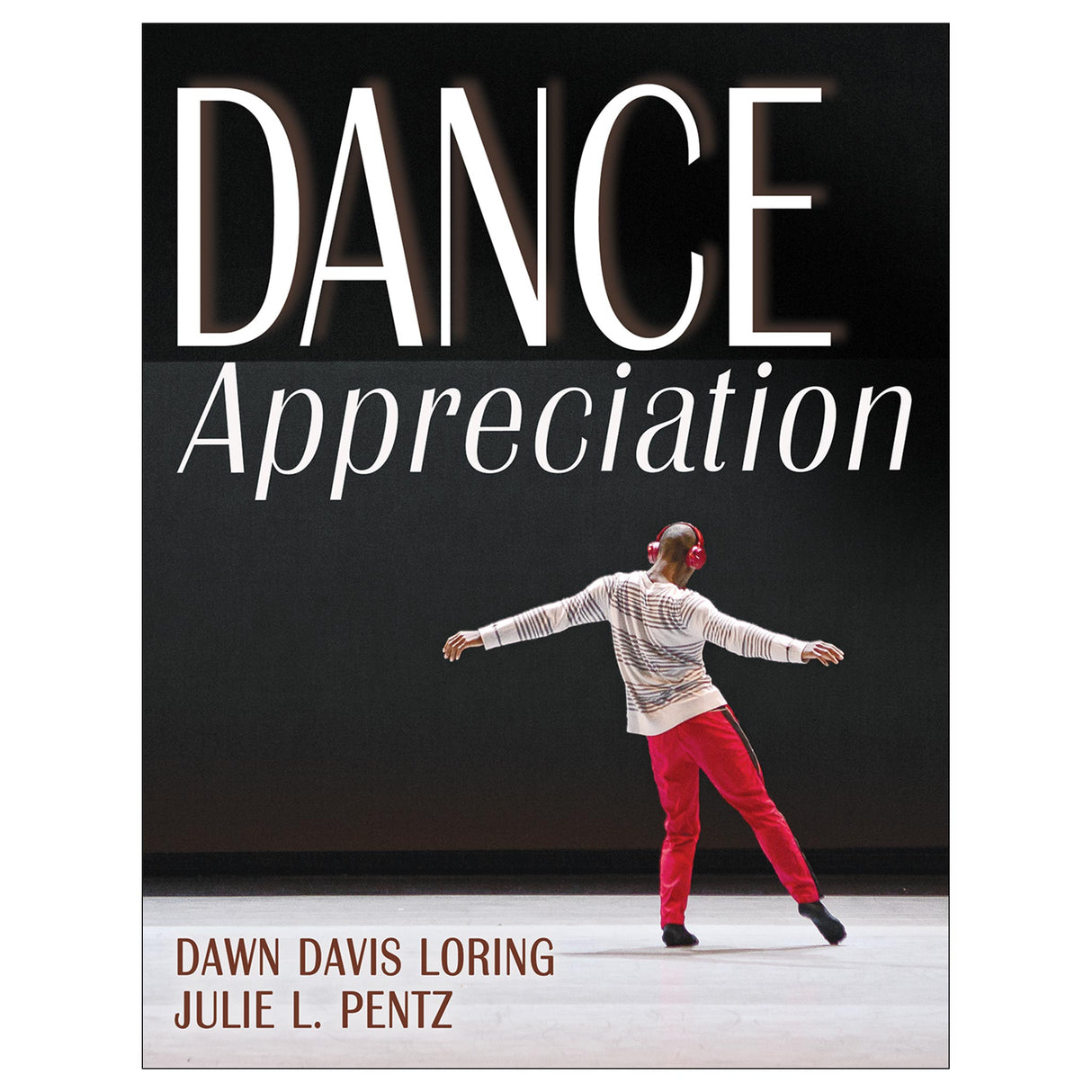Dance Appreciation With HKPropel Access
Author: Dawn Loring, Julie Pentz
$136.95 CAD
Dance Appreciation is written to encompass the needs of a broad range of dance students, from high school to university level, and is appropriate for students who are new to dance as well as those who are experienced in the art form. The text will help learners discover more about themselves, connect with dance, and make it a relevant and vital part of their lives, whether it is their primary course of study, eventual career path, or simply a way to express themselves and enrich their lives.
This text is the only dance appreciation resource that offers ancillary materials for instructors:
- Instructor ancillaries consisting of an instructor guide, test package, and PowerPoint presentation package make the teaching experience both easier and more effective, whether teaching in face-to-face or online settings.
- Five video segments demonstrate elements of dance and offer associated learning and movement activities, bringing the content to life for students.
- Textbook elements such as learning objectives, key terms, Enduring Understanding statements, Spotlight special elements, and chapter discussion questions help students navigate the chapters and retain the essential content.
Dance Appreciation helps students understand dance from the perspectives of dancers, choreographers, and professionals in other careers related to dance. Students are introduced to a broad range of dance genres, forms, and styles, and they learn to forge a relationship with dance as an art form, connecting it with other academic and artistic disciplines and with their own life experiences.
The text is organized into three parts. Part I, Exploring Dance, provides a foundational understanding of who dances and why, and it introduces the elements of dance and movement principles. Part II, Selected Dance Genres and Styles, covers Western dance genres, examining classical concert dance forms, hip-hop, and aerial and site-specific dance, highlighting notable artists and events. In part III, Connecting With Dance, students delve into aspects of dance performance and production, learning approaches for viewing and responding to dance performances and exploring the role of global interactions, especially through online content and social media, in developing and transmitting new dance forms and styles. Throughout the text, readers will learn about dance-related career paths.
Dance Appreciation offers instructors an up-to-date, comprehensive resource—complete with an array of ancillaries—that ensures that students have the opportunity to become informed, discerning, and responsive dance audience members and gain a broad appreciation of dance as an art form and a lifetime physical activity.
Note: A code for accessing HKPropel is included with all new print books.
Audience
Undergraduate text for general education courses in dance.Chapter 1. What Is Dance, and Who Dances?
Dance Categories
Dance Processes
Dance Literacy
Accessing Dance Through Other Arts
Chapter 2. Why Do People Dance?
Dance as Imitation
Dance as Expression
Dance as Form
Chapter 3. Elements of Dance
Moving Bodies
Elements of Dance
Principles of Dance Composition
Part II. Selected Dance Genres and Styles
Chapter 4. Social Dance
Origins of Social Dance
Evolution of Social Dance in the 20th Century
Chapter 5. Ballet
What Is Ballet?
Primary Ballet Principles
Origins of Ballet
Dancers and Training
Future Directions
Chapter 6. Modern and Contemporary Modern Dance
What Is Modern and Contemporary Modern Dance?
Primary Modern and Contemporary Modern Dance Principles
Dancers and Training
Development of Modern Dance
Future Directions of Contemporary Modern Dance—21st-Century Voices
Chapter 7. Jazz Dance
Origins of Jazz Dance
Primary Principles of Jazz Dance
Training and Performing
Major Influences in Jazz Dance
Female Voices in Jazz Dance—The Next Generation
Chapter 8. Tap Dance
Origins of Tap Dance
Tap Dance in the 20th Century and Beyond
Styles of Tap Dance
Dancers and Training
Chapter 9. Hip-Hop
Origins of Hip-Hop Dance
The Five Pillars of Hip-Hop
Journey Into the Mainstream
Styles of Hip-Hop
Commercial Hip-Hop Dance and the Turn of the Century
A New Millennium and New Directions
Chapter 10. Aerial and Site-Specific Dance
Site-Specific Dance
Aerial Dance
Part III. Connecting With Dance
Chapter 11. Dance Production
Front of House
Administration
Backstage
Postproduction
Chapter 12. Viewing and Responding to Dance Performances
Viewing Dance
Responding to Dance
Chapter 13. Global Connections in Dance
Approaching Dance Around the World
Connected by Common Goals
Sharing Dance Globally
Sharing Dance Through Social Media
Elements of Dance
Guidelines for Writing a Dance Review
Spotlight: K-5 Public School Dance Teacher



Instructor ancillaries are now available through HKPropel, a new platform that provides easy access to materials and these new features:
- Free ebooks for instructors, with an ebook reader built into HKPropel
- Convenient access to all instructor ancillaries in one location
- Download options—download files to access your ancillary materials offline or develop printed handouts for students
- Seamless integration with your LMS—compatible with Respondus, Blackboard, and other QTI-enabled LMS applications
All ancillaries are free to adopting instructors through HKPropel.
Instructor guide. Each chapter in the instructor guide contains the following:
- Chapter summary
- Activities, designed to encourage reflection and hone writing and presentation skills, that include individual, group, and class options
- Ideas for papers and essay topics
- Stable website links that offer video learning, trusted resources, and further directions for research
- Teaching Tips to support your teaching and your students’ learning
Test package. Contains more than 290 questions in true-false, fill-in-the-blank, essay and short-answer, and multiple-choice formats.
Presentation package. Includes more than 250 PowerPoint slides of text, artwork, and tables from the book that can be used for class discussion and presentation. The slides in the presentation package can be used directly within PowerPoint or printed for distribution to students. Instructors can easily add, modify, and rearrange the order of the slides.





